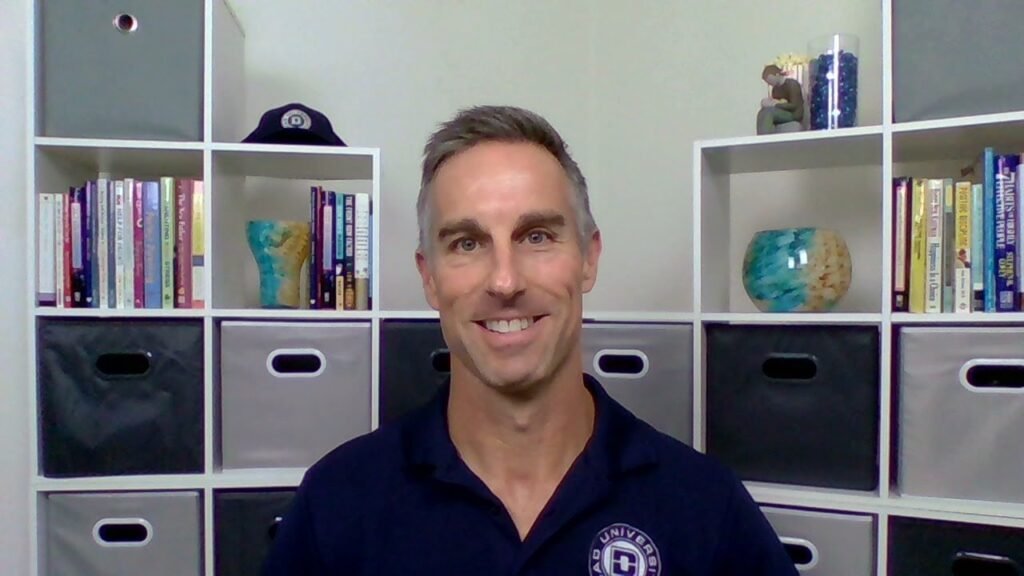In the “Live Q&A Session for Soon-to-be Dads and New Fathers on Parenting,” the speaker covers a range of topics related to fatherhood and parenting, offering valuable advice and insights. He addresses concerns about hyperactive babies, providing reassurance and suggesting consultation with a pediatrician. Additionally, he shares tips on managing stress as a dad and dealing with a crying baby. The video also explores introducing healthier foods to toddlers, addresses concerns about loving a child, and touches on emotions, financial preparations, and relationship maintenance after becoming a parent. The speaker encourages open communication, seeks input from viewers for a new course for soon-to-be dads, and invites questions for an engaging discussion.
During the live session, the speaker engages with viewers, answering their questions and addressing their concerns. He acknowledges their presence and welcomes their participation. The session covers various topics, such as hyperactive babies, stress management, introducing new foods to toddlers, and choosing a baby’s name. The speaker emphasizes seeking support, maintaining open communication, and consulting with professionals for any concerns. With a friendly and interactive tone, the video aims to provide valuable guidance and support to soon-to-be dads and new fathers on their parenting journey.

Topic: Live Q&A Session for Soon-to-be Dads and New Fathers on Parenting
Introduction
Welcome to this live Q&A session for soon-to-be dads and new fathers on parenting! In this session, we will cover a range of topics related to fatherhood and provide tips, advice, and answers to your burning questions. Being a dad can be both exciting and overwhelming, and we’re here to help you navigate this incredible journey.
Creating a New Course for Soon-to-be Dads
We are thrilled to announce that we are in the process of creating a new course specifically designed for soon-to-be dads. We believe that preparing dads for fatherhood is just as important as preparing moms, and this course aims to provide you with the necessary knowledge and skills to confidently embrace your new role. We would love to hear your input and suggestions to ensure that this course covers all the essential topics and addresses your specific concerns.
Addressing Concerns about Having a Hyperactive Baby
One common concern among new fathers is having a hyperactive baby. It’s important to understand that babies are naturally active, and some may appear more hyperactive than others. If you have concerns about your baby’s activity levels, it is always a good idea to consult with a pediatrician who can provide professional guidance and reassurance. They can help you differentiate between normal baby behavior and hyperactivity and give you peace of mind.
Tips on Handling Stress as a Dad
Being a dad comes with its fair share of stress and pressure. It’s crucial to recognize and manage stress to ensure your well-being and the well-being of your family. One effective way to handle stress is by practicing self-care. Take time for yourself to engage in activities that you enjoy and help you relax. It’s also essential to seek support from loved ones and utilize available resources, such as parenting groups, to share your experiences and learn from other dads.
Dealing with a Baby Who Won’t Stop Crying
Babies communicate through crying, and it can often be a challenge to decode the reasons behind their tears. If your baby won’t stop crying, there are a few steps you can take. First, try to identify the potential reasons for their discomfort, such as hunger, tiredness, or a wet diaper. Comforting techniques, such as gentle rocking, singing, or using a pacifier, can also help soothe a crying baby. If you have tried various methods without success, and your baby’s crying is persistent or accompanied by other concerning symptoms, don’t hesitate to consult with a healthcare professional.
Introducing New and Healthier Foods to Toddlers
As your child transitions into toddlerhood, introducing new and healthier foods becomes increasingly important. A balanced diet is crucial for their growth and development. Instead of relying on pre-packaged meals, consider making food at home using fresh ingredients. This way, you have control over what goes into your toddler’s meals, ensuring they receive the necessary nutrients. Get creative with presentation and involve your toddler in meal preparation to make the experience enjoyable for both of you. Keep in mind that it’s common for toddlers to be picky eaters, so be patient and offer a variety of healthy options.
Concerns about Loving a Child
It’s normal for new fathers to have concerns about loving their child. The bond and feelings of love may not be immediate for everyone, and that’s okay. Building a loving relationship takes time and patience. Allow yourself to embrace the journey and understand that love evolves as your child grows. You will have ups and downs, but with support and nurturing, you will develop a deep and meaningful connection with your child.
Questions and Concerns from Viewers
During this live Q&A session, we will address questions and concerns from viewers like you. We understand that every individual and family is unique, and it’s important to address a wide range of topics to provide comprehensive support. Some of the common questions we will cover include emotional preparation for fatherhood, managing expectations as a new father, financial preparations and budgeting, maintaining relationships after having a child, balancing work and fatherhood, and co-parenting and sharing responsibilities.
Emotional Preparation for Fatherhood
Fatherhood is a beautiful and transformative journey that can stir up a range of emotions. Emotional preparation involves acknowledging and embracing these emotions while building a strong foundation for yourself and your growing family. We will discuss practical tips and strategies to help you navigate the emotional aspects of fatherhood and ensure a positive and fulfilling experience.
Financial Preparations and Budgeting
Preparing financially for a child is a significant aspect of becoming a father. We will cover essential topics related to financial preparations, including budgeting, prioritizing expenses, and planning for the future. Our goal is to provide you with the necessary information and guidance to ensure financial stability and security for your family.
Maintaining Relationships After Having a Child
Having a child brings significant changes to existing relationships, including those with your partner, extended family, and friends. We will discuss the importance of open communication and finding balance in your relationships while navigating the demands of parenthood. Maintaining strong and healthy relationships is essential for your own well-being and overall family dynamics.
Importance of Open Communication and Seeking Support
Throughout the session, we will emphasize the importance of open communication and seeking support as a dad. It’s crucial to create a support system of friends, family, and other fathers who can offer guidance and understanding. Building this network will help you navigate the ups and downs of fatherhood and provide an invaluable source of support and advice.
Conclusion
In conclusion, being a soon-to-be dad or a new father is an exciting and rewarding experience. However, it also comes with its unique challenges and concerns. We hope this live Q&A session has provided you with valuable insights, advice, and answers to your questions. Remember, you are not alone on this journey, and there are resources and support available to help you become the best dad you can be. Embrace the adventure, and don’t forget to enjoy every precious moment with your child.

